

 Iran's 2026 internet shutdown was not a glitch but a trial of digital sovereignty, revealing how easily connectivity can be weaponised to silence society, concentrate state power, and fracture the promise of a global internet.
Iran's 2026 internet shutdown was not a glitch but a trial of digital sovereignty, revealing how easily connectivity can be weaponised to silence society, concentrate state power, and fracture the promise of a global internet.
 Iran's deliberate disconnection from the global internet reveals a deeper crisis in digital governance, where state-led suppression and procedural legitimacy now threaten the foundational architecture and human rights principles of an open web.
Iran's deliberate disconnection from the global internet reveals a deeper crisis in digital governance, where state-led suppression and procedural legitimacy now threaten the foundational architecture and human rights principles of an open web.
 Internet governance is shifting from participatory forums to security-driven mandates. As authority accelerates ahead of legitimacy, technical systems face growing instability and operators absorb the risks of politically motivated control.
Internet governance is shifting from participatory forums to security-driven mandates. As authority accelerates ahead of legitimacy, technical systems face growing instability and operators absorb the risks of politically motivated control.
 Despite deep geopolitical divides, the WSIS+20 outcome document was adopted by consensus, preserving a multistakeholder vision for the digital future while deferring controversial issues to a time more conducive to progress.
Despite deep geopolitical divides, the WSIS+20 outcome document was adopted by consensus, preserving a multistakeholder vision for the digital future while deferring controversial issues to a time more conducive to progress.
 ICANN is finalising a policy to curb DNS abuse, aiming to preserve internet stability while defending freedom of expression. With regulatory pressure mounting, the multistakeholder model faces a critical test.
ICANN is finalising a policy to curb DNS abuse, aiming to preserve internet stability while defending freedom of expression. With regulatory pressure mounting, the multistakeholder model faces a critical test.
 AI has revolutionized how we process information, optimize tasks, and conduct research. However, its integration into academia sparks ethical and practical debates. Should we limit its use? How can we assess a student's true knowledge if they employ these tools? This text explores these questions from the perspective of a technology expert who argues that banning AI is as absurd as rejecting calculators or spreadsheets in the past.
AI has revolutionized how we process information, optimize tasks, and conduct research. However, its integration into academia sparks ethical and practical debates. Should we limit its use? How can we assess a student's true knowledge if they employ these tools? This text explores these questions from the perspective of a technology expert who argues that banning AI is as absurd as rejecting calculators or spreadsheets in the past.
 What happens when governments don't just regulate content, but forcibly repurpose the very guts of the Internet's infrastructure to enforce their policies? The chilling answer, increasingly evident worldwide, is widespread, devastating collateral damage. Around the world, neutral systems like Domain Name System (DNS) resolvers and IP routing, the bedrock of our digital lives, are being weaponized as enforcement tools.
What happens when governments don't just regulate content, but forcibly repurpose the very guts of the Internet's infrastructure to enforce their policies? The chilling answer, increasingly evident worldwide, is widespread, devastating collateral damage. Around the world, neutral systems like Domain Name System (DNS) resolvers and IP routing, the bedrock of our digital lives, are being weaponized as enforcement tools.
 Tech developments saw less drama than trade and environmental shifts during Trump's first 100 days. Continuity, not abrupt change, defined his approach to AI and digital regulation. Only 9 of 139 executive orders (EOs) focused on tech. Trump's tech policy emphasised reviews and incremental shifts. Public consultations on AI, cybersecurity, and cryptocurrencies signal steady evolution over upheaval.
Tech developments saw less drama than trade and environmental shifts during Trump's first 100 days. Continuity, not abrupt change, defined his approach to AI and digital regulation. Only 9 of 139 executive orders (EOs) focused on tech. Trump's tech policy emphasised reviews and incremental shifts. Public consultations on AI, cybersecurity, and cryptocurrencies signal steady evolution over upheaval.
 The terms Digital Sovereignty or Souveraineté numérique have recently risen in prominence to describe the international rule of law as it applies to information and communication technologies. At a time when disinformation is proliferating and the rule of law, democracy, and human rights, together with long-standing relationships, are being cast aside, digital sovereignty is scaling in importance as a key defensive measure among many nations.
The terms Digital Sovereignty or Souveraineté numérique have recently risen in prominence to describe the international rule of law as it applies to information and communication technologies. At a time when disinformation is proliferating and the rule of law, democracy, and human rights, together with long-standing relationships, are being cast aside, digital sovereignty is scaling in importance as a key defensive measure among many nations.
 Mark Zuckerberg's recent announcement of sweeping changes to Meta's content moderation policies marks a pivotal moment for the internet, democracy, and truth itself. The decision to replace third-party fact-checking with a decentralized "Community Notes" system and relocate trust and safety operations to Texas signals a shift in Meta's governance approach. This move is not only politically expedient but also a troubling prelude to the tech industry bowing to the political priorities of the incoming Trump administration.
Mark Zuckerberg's recent announcement of sweeping changes to Meta's content moderation policies marks a pivotal moment for the internet, democracy, and truth itself. The decision to replace third-party fact-checking with a decentralized "Community Notes" system and relocate trust and safety operations to Texas signals a shift in Meta's governance approach. This move is not only politically expedient but also a troubling prelude to the tech industry bowing to the political priorities of the incoming Trump administration.
 At the recent Internet Corporation for Assigned Names and Numbers (ICANN) 80 Policy Forum meeting, one notable takeaway was its close focus on questions around the stability and security of the technical layer of the Internet: the growing risks which assail it, and potential ways to address these through governance.
At the recent Internet Corporation for Assigned Names and Numbers (ICANN) 80 Policy Forum meeting, one notable takeaway was its close focus on questions around the stability and security of the technical layer of the Internet: the growing risks which assail it, and potential ways to address these through governance.
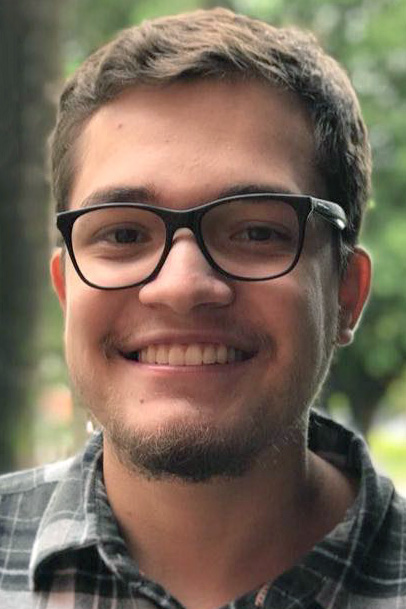 Governments worldwide increasingly resort to shutting down the Internet as a political tool to control information and silence dissent. This alarming trend is not limited to developing nations grappling with civil unrest or political transition. Indeed, it is gaining traction in developed nations, suggesting a global phenomenon transcending geographical boundaries and socio-economic development levels.
Governments worldwide increasingly resort to shutting down the Internet as a political tool to control information and silence dissent. This alarming trend is not limited to developing nations grappling with civil unrest or political transition. Indeed, it is gaining traction in developed nations, suggesting a global phenomenon transcending geographical boundaries and socio-economic development levels.
 On Friday, 23rd June, Caribbean telecommunications operators (telcos) held a meeting in Miami to fine tune their strategy to force Big Tech companies to contribute financially to regional telecoms network infrastructure. Hosted by the Caribbean Telecommunications Union (CTU), and taking a similar perspective to the "fair share" proposal currently being debated in the European Union, regional network operators are arguing that over-the-top (OTT) service providers are responsible for 67 percent of the total Internet traffic in the Caribbean, but make no contributions or investments toward local delivery networks.
On Friday, 23rd June, Caribbean telecommunications operators (telcos) held a meeting in Miami to fine tune their strategy to force Big Tech companies to contribute financially to regional telecoms network infrastructure. Hosted by the Caribbean Telecommunications Union (CTU), and taking a similar perspective to the "fair share" proposal currently being debated in the European Union, regional network operators are arguing that over-the-top (OTT) service providers are responsible for 67 percent of the total Internet traffic in the Caribbean, but make no contributions or investments toward local delivery networks.
 In the latest twist of the US-China spat, President Trump has his sights on TikTok, the short-form video-sharing platform and ByteDance subsidiary. On July 31, President Trump threatened to ban TikTok because it was a threat to US national security. On August 6, he made good on his threat when he signed an Executive Order to that effect. President Trump tightened the screws with an August 14 Executive Order requiring ByteDance to divest its assets in the US and destroy any TikTok data on its US users within 90 days.
In the latest twist of the US-China spat, President Trump has his sights on TikTok, the short-form video-sharing platform and ByteDance subsidiary. On July 31, President Trump threatened to ban TikTok because it was a threat to US national security. On August 6, he made good on his threat when he signed an Executive Order to that effect. President Trump tightened the screws with an August 14 Executive Order requiring ByteDance to divest its assets in the US and destroy any TikTok data on its US users within 90 days.
 How to properly balance the commercial rights of a complainant with the free speech rights of a respondent has challenged a generation of Uniform Domain Name Dispute Resolution Policy (UDRP) panelists. Panelists have adopted a variety of approaches and consensus has been elusive. Paragraph 4(c)(iii) of the Policy provides that a respondent may have a right or legitimate interest in a disputed domain name...
How to properly balance the commercial rights of a complainant with the free speech rights of a respondent has challenged a generation of Uniform Domain Name Dispute Resolution Policy (UDRP) panelists. Panelists have adopted a variety of approaches and consensus has been elusive. Paragraph 4(c)(iii) of the Policy provides that a respondent may have a right or legitimate interest in a disputed domain name...
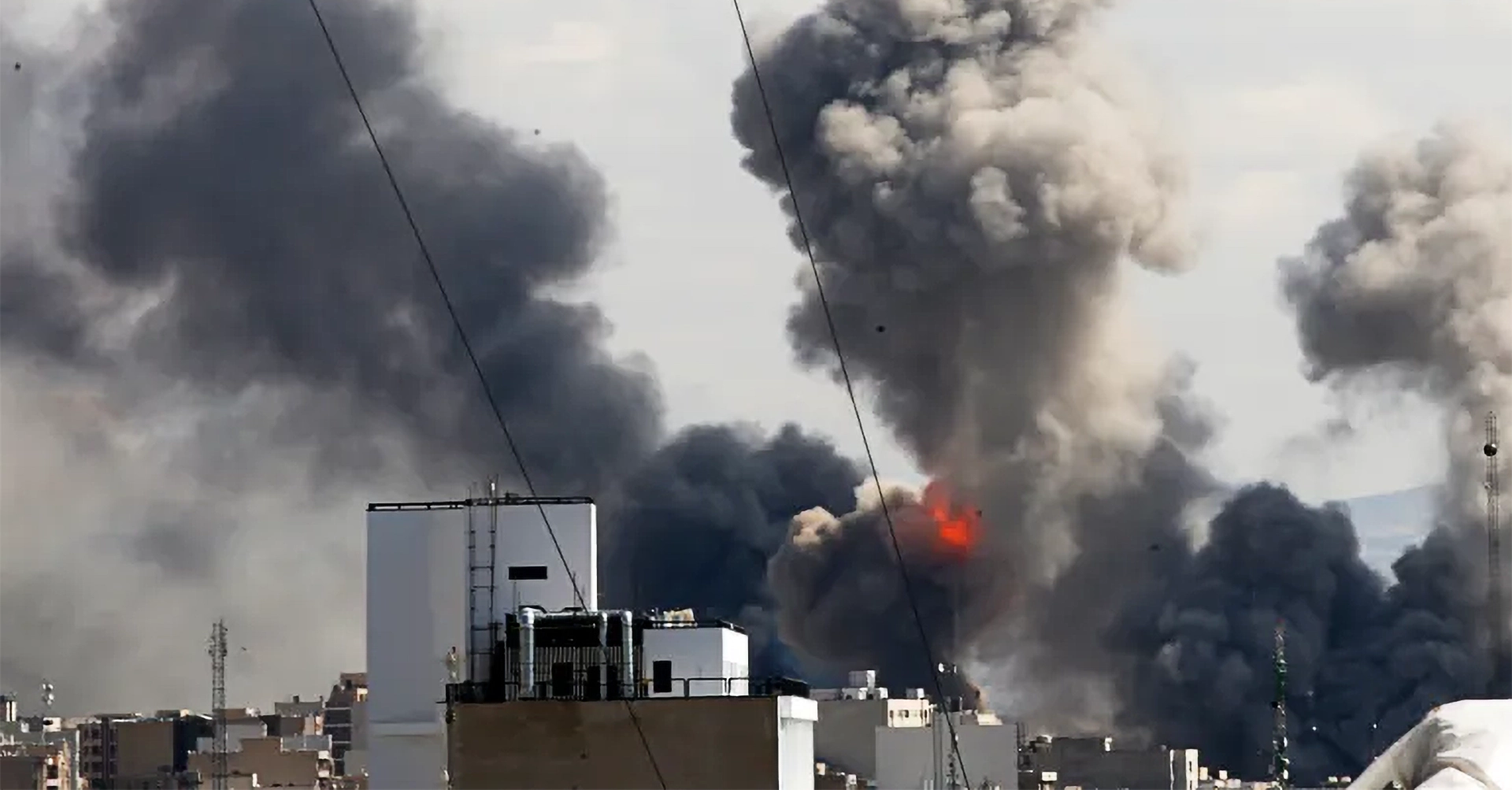 Iranians Outsmart Internet Blackout to Broadcast Airstrikes
Iranians Outsmart Internet Blackout to Broadcast Airstrikes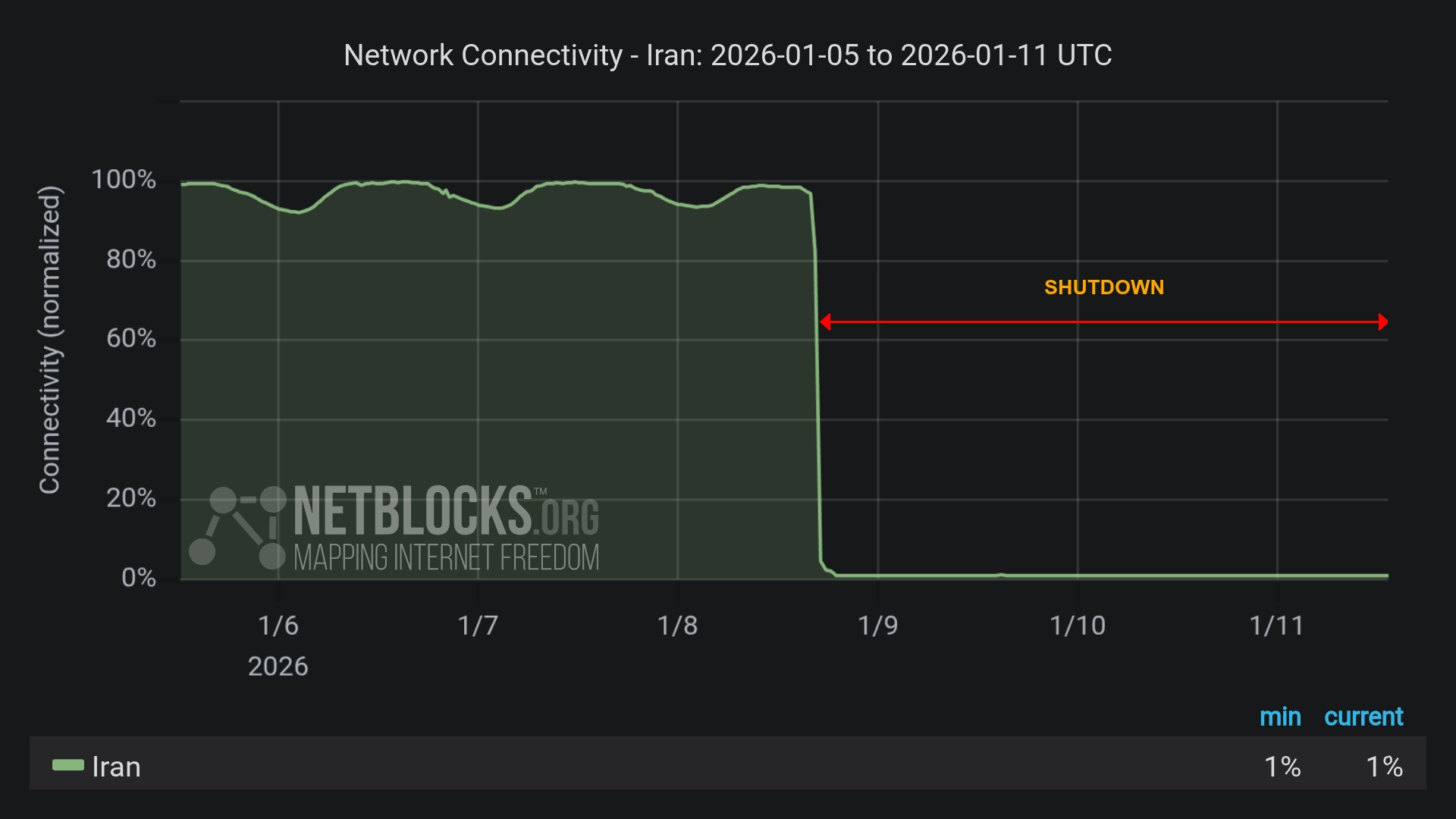 Iran Cuts Off Internet Nationwide as Regime Disrupts Even Starlink Amid Expanding Protests
Iran Cuts Off Internet Nationwide as Regime Disrupts Even Starlink Amid Expanding Protests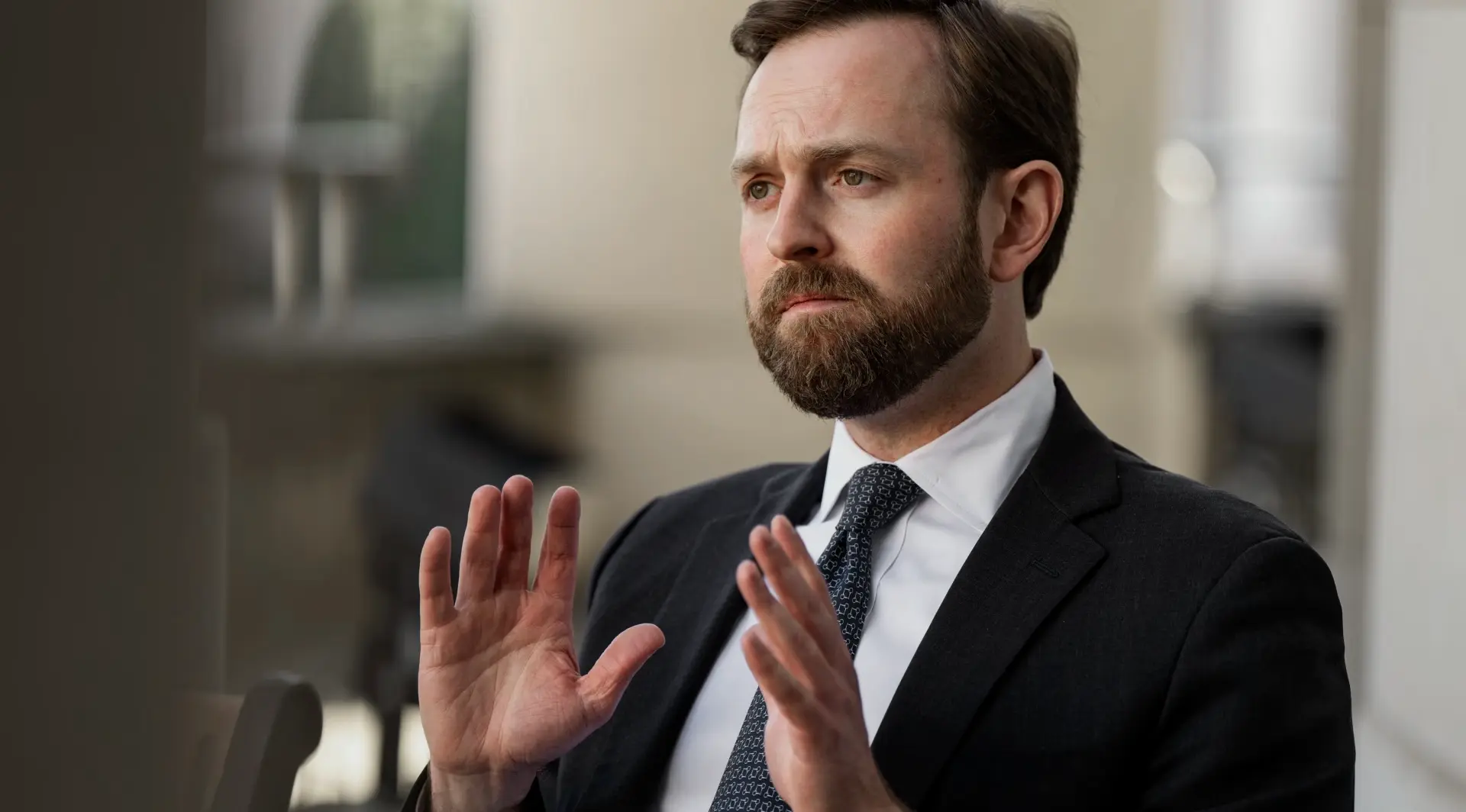 FTC to Big Tech: Don’t Trade American Privacy for Foreign Demands
FTC to Big Tech: Don’t Trade American Privacy for Foreign Demands Smuggled Phone Reveals North Korea’s Regime Captures User Screens Every Five Minutes, Censors Texting
Smuggled Phone Reveals North Korea’s Regime Captures User Screens Every Five Minutes, Censors Texting Ukraine Arrests VPN Operator Facilitating Access to Russian Internet
Ukraine Arrests VPN Operator Facilitating Access to Russian Internet Apple Under Fire for Removing VPN Apps from Russia’s App Store
Apple Under Fire for Removing VPN Apps from Russia’s App Store Brazil Enforces Fines for VPN Use to Access Elon Musk’s Platform X
Brazil Enforces Fines for VPN Use to Access Elon Musk’s Platform X Russia Invests $660 Million to Boost Internet Censorship and Block VPNs
Russia Invests $660 Million to Boost Internet Censorship and Block VPNs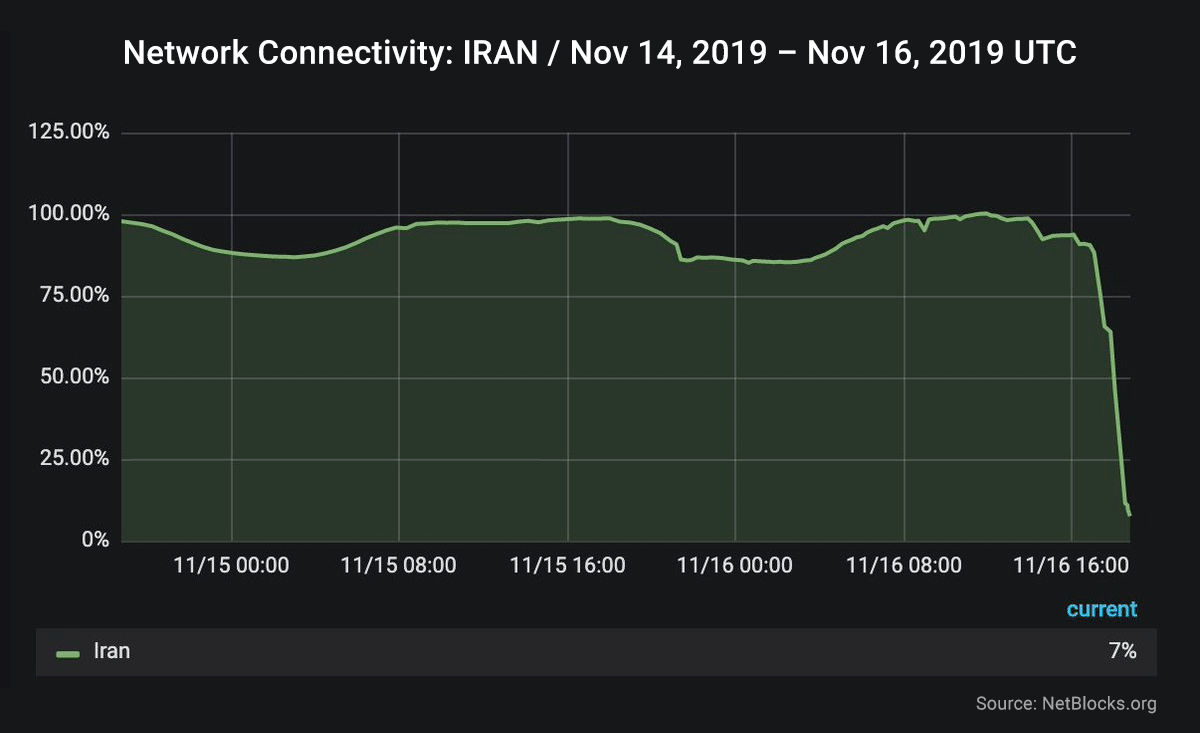 Iran Almost Completely Shuts Off Internet Access Across the Country Amid Protests Over Fuel Prices
Iran Almost Completely Shuts Off Internet Access Across the Country Amid Protests Over Fuel Prices